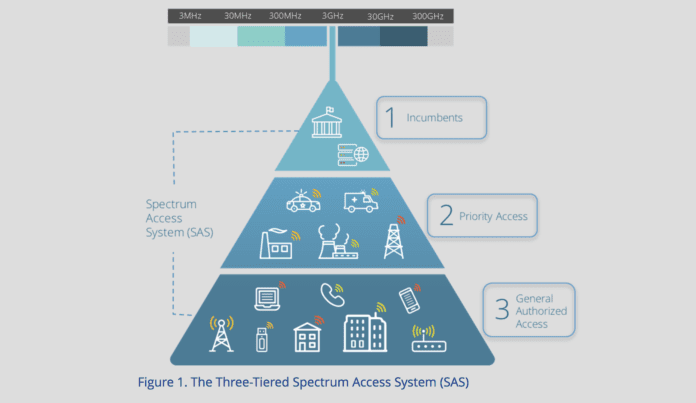Test lab certification puts CBRS one step closer to commercialization
The first test labs have been certified for conducting testing of products utilizing the Citizens Broadband Radio Service shared spectrum.
The Wireless Innovation Forum, which put together the technical specifications for the utilization of 3.5 GHz CBRS spectrum under a three-tiered sharing framework, announced that the first six labs approved for conducting Federal Communications Commission certification testing are:
-Bureau Veritas Consumer Products Services’ Taoyuan Branch for mobile communications
-Dekra Certification
-Nemko, which has multiple locations approved
-Nokia’s Global Product Compliance Laboratory
-Sporton International
-TUV SUD Canada
Lee Pucker, CEO of WInnForum, said in a statement that “approval of WInnForum standards certified test labs provides a significant step towards commercialization of the CBRS Band” and that the initial six labs “are considered the first wave of WInnForum CBRS Approved test labs with more to follow.”
CTIA manages the test lab approval program for WInnForum.
CBRS spectrum sharing has three components: protected use of the spectrum for incumbents such as naval radar systems; Priority Access Licenses that will give licensees (as the name suggests) prioritized access to the band in the absence of incumbents; and General Authorized Access, or unlicensed operation in the band. GAA users and devices must still be register with Spectrum Access System administrators so that the SAS can manage the spectrum appropriately.
Federal Communications Commission certification for CBRS devices requires testing by a WInnForum-approved lab and is open to any technology. LTE-based devices that want to operate under the newly introduced OnGo brand of CBRS Alliance must navigate additional testing. CBRS Alliance’s OnGo certification program, launched earlier this year with support from 10 labs, will ensure that devices can successfully navigate the dynamic three-tiered CBRS spectrum sharing framework and are interoperable with one another. OnGo certification is open only to LTE devices.
The industry is still waiting for the FCC to set the final rules governing the size and terms of Priority Access Licenses which will be auctioned and to give final approval to the SAS administrators and Environmental Sensing Capability systems that will protect naval radar systems. GAA operations are not contingent upon the auction rules being set and can begin once the SAS and ESC are approved, which is anticipated to happen before the end of this year.
Looking for more information on CBRS and private LTE? Register for the upcoming RCR Wireless News editorial webinar on the topic, to be held July 18th at 2 p.m. EST. We will publish our editorial special report the same day.

